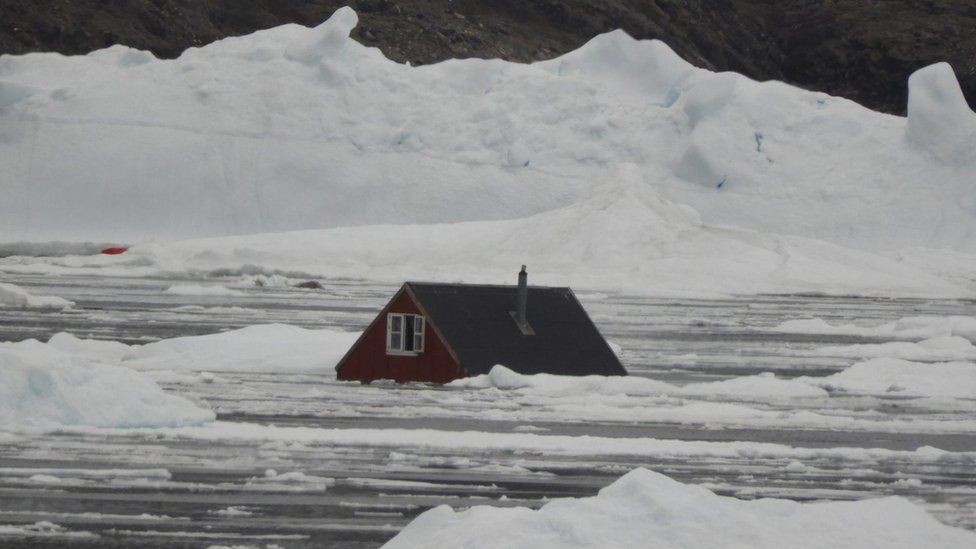Greenland Landslide Mega-Tsunami: A Catastrophic Event
In September 2023, a catastrophic landslide in Greenland triggered a mega-tsunami that has since captured the attention of scientists and the media alike. This event, which resulted from the collapse of a glacier, has raised significant concerns regarding the impacts of climate change and the potential for similar disasters in the future.
The Triggering Event
The disaster began with the melting of glaciers in Greenland, a phenomenon increasingly linked to global warming. As temperatures rise, glaciers become unstable, leading to landslides. In this case, a 1.2-kilometer-high mountain collapsed into the Dickson Fjord, resulting in a 650-foot high tsunami. The wave was so powerful that it created seismic signals detectable worldwide, causing the Earth to vibrate for nine days.
Seismic Signals and Global Impact
The seismic waves generated by the tsunami were akin to those produced by a 4.1 magnitude earthquake. Researchers noted that the waves "rang the Earth like a bell," indicating the immense energy released during the landslide. This phenomenon was not just a local event; it had global implications, as the seismic signals were recorded by sensors across the world.
Scientific Investigations
Several news outlets have reported on the scientific investigations following the tsunami. For instance, a report from CNN highlighted the mysterious vibrations that followed the tsunami, which scientists are still trying to understand. The National Oceanic and Atmospheric Administration (NOAA) and other research institutions are actively studying the event to glean insights into the risks posed by climate change and landslides.

Key Findings
- Wave Dynamics: The tsunami waves bounced back and forth within the fjord for nine days, creating a complex pattern of water movement that scientists are still analyzing.
- Seismic Activity: The seismic signals were not only a result of the initial landslide but also included a long-lasting very low frequency (VLF) signal caused by the oscillation of water in the fjord, known as a seiche.
- Climate Change Connection: Researchers are increasingly linking such events to climate change, emphasizing the need for further studies to understand how rising temperatures may lead to more frequent and severe landslides and tsunamis.
Media Coverage
The event has been widely covered in various media outlets, with articles detailing the scientific implications and the humanitarian risks associated with such natural disasters. Here are some notable reports:
- NBC News reported on the tsunami's height and its effects, noting that the waves persisted for days, creating a significant impact on the local environment.
- Science Daily provided insights into the mechanics of the landslide and tsunami, emphasizing the role of climate change in destabilizing Greenland's glaciers.
- BBC News highlighted the global seismic impact of the tsunami, noting that sensors worldwide detected the vibrations caused by the event.
Humanitarian Concerns
While the immediate impact of the tsunami was felt in Greenland, the broader implications for humanitarian efforts are significant. Experts warn that as climate change continues to destabilize glaciers, the risk of similar disasters increases, potentially leading to loss of life and displacement of communities.
Future Risks
The potential for future mega-tsunamis poses a serious threat, particularly in regions with similar geological and climatic conditions. Scientists are urging governments and organizations to prepare for such events by investing in early warning systems and disaster preparedness strategies.

The Greenland landslide mega-tsunami serves as a stark reminder of the interconnectedness of climate change and natural disasters. As scientists continue to study the event, it is crucial for policymakers and communities to recognize the risks and take proactive measures to mitigate the impacts of future disasters. The lessons learned from this event could be vital in shaping our response to the ongoing challenges posed by a changing climate.
For more detailed information, you can explore the following articles:
This event underscores the urgent need for global action on climate change and disaster preparedness to protect vulnerable communities worldwide.





